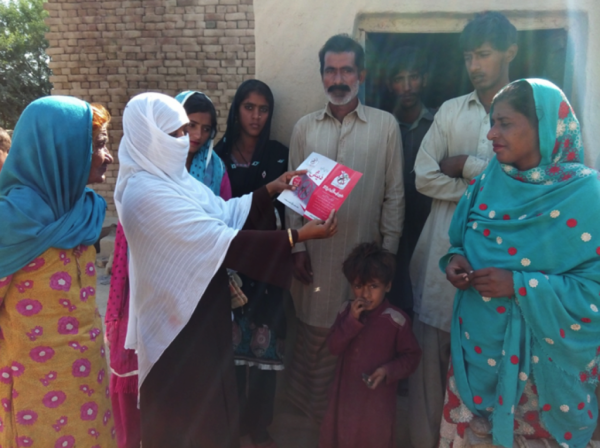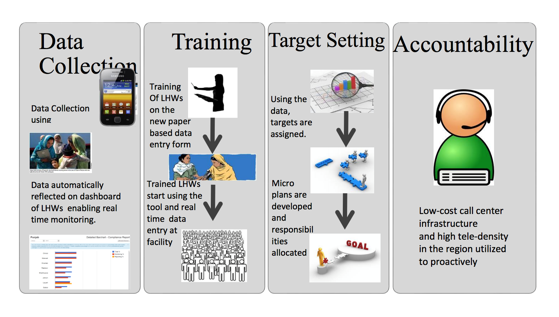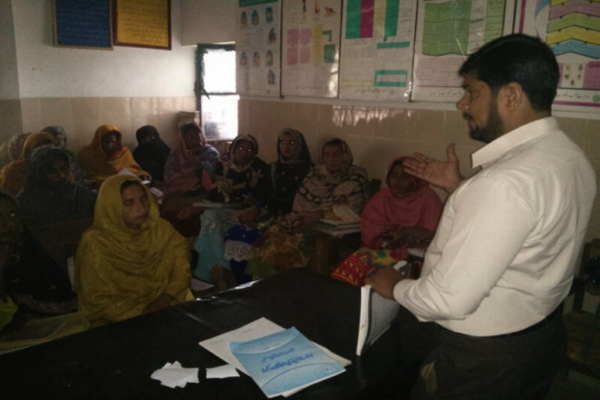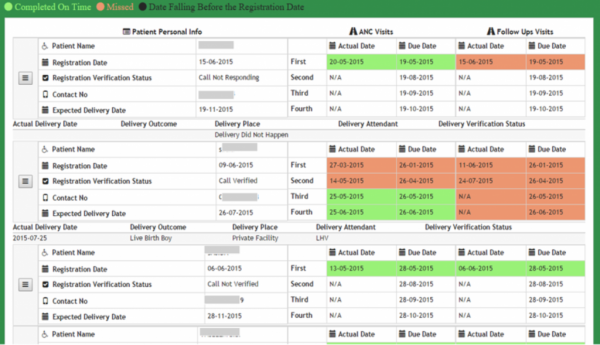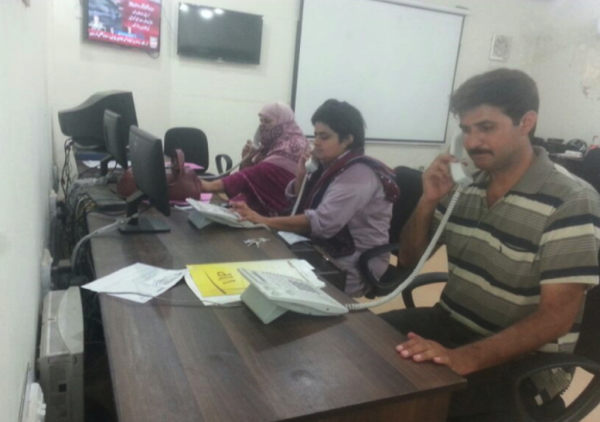Bahawalpur Service Delivery Unit (BSDU) proves there is appetite among government in Pakistan to use technology to improve their services.
Government officials, just like us normal folk, are a mixed bunch. Some follow the rules, accept limitations and, when systems and procedures don’t work – fail to see alternatives.
Others explore new approaches, look to build on their ideas and don’t stop at “good enough.”
One government official, Imran Baloch District Coordinator for Bahawalpur district in Punjab, has taken the latter approach. He partnered with Technology for People Initiative and took his innovative idea, Bahawalpur Service Delivery Unit (BSDU) to the Making All Voices Count Global Innovation Competition in 2014 and won. Since, he has been helping improve government services for 3.6 million in Bahawalpur, the largest district of Punjab.
Bahawalpur Service Delivery Unit
Imran describes BSDU as a small team “working like a governance SWAT team” and explains that the focus of the initiative is to fast-track information to improve the delivery of government services.
As District Coordinating Officer, Imran is in charge of identifying problem areas for the government – for example teacher absenteeism – and the BSDU then:
- Identifies relevant indicators and gathers baseline information
- Gives a roadmap of targets and actions to achieve targets
- Develops a dashboard and online tools to gather and monitor data
- Develops a citizen feedback model by reaching out to citizens and street level officials directly
- Measures and reports performance to Imran and other stakeholders involved
Connecting Vulnerable Women with Health Services
Pakistan has one of the highest maternal mortality rates in the world, with one in every 33 women dying during pregnancy. However as Imran explains:
Many deaths are preventable, as there are already solutions in place to prevent or manage complications. The problem is the system isn’t reaching everyone and women are falling through the gaps.
Although it’s mandatory for women in Pakistan to register with the government to receive antenatal and professional medical care during and after childbirth, the Bahawalpur Service Delivery Unit have found that many women do not register.
In the most poor rural area of Bahawalpur, community health workers registered only a small percentage of women, the average time between check-ups was 150 days and workers, who are mandated to conduct at least four follow-up visits and bring expectant mothers to the nearest health facility at least four times during the course of pregnancy, conduct an average of only two.
Only 35% of women surveyed by the team were reaching a health facility for delivery. Further, Imran explains:
I found it worrisome this data was captured manually and no one up the hierarchy was looking at, or verifying it.
To tackle this issue, and help more women to have access to better care, the BSDU is tracking data on the interaction between health workers and pregnant women.
The platform allows community workers to log and share information easily. Once a woman is registered, the system creates a pregnancy plan, states the number of expected check-ups and registers the mother with the nearest health facility.
To ensure data entry is accurate, an in-house call center calls the pregnant mothers after scheduled visits to confirm they occurred.
BSDU is responsive and functions in real-time.
As soon as a visit takes place, the system is updated and if a visit doesn’t occur, an alert is generated which is seen by health officials.
The system is currently functional in eight union councils, each with a population between 15-20,000, and is already showing positive results. After only 8 months of operation, 11,000 women are registered and the call centre has made more than 4,000 calls to follow up on their care.
The team are also finding that health workers in Bahawalpur are registering more pregnant women and getting them into the formal health system where they can have the safest possible delivery.
This has coincided with improvements in health statistics across Bahawalpur, which the team believe their improved registration and tracking system is contributing to: from May 2014 to May 2015, the percentage of deliveries by skilled birth attendants increased by 17% and the percentage of deliveries at a government facility has increased by 19%.
BSDU is proving there is appetite among government in Pakistan to use technology to improve their services, and that digital registration and tracking is helping to ensure that more women have the opportunity to give birth in a safe environment.
What’s next for BSDU?
While continuing its health services, BSDU is also determined to show that their strategy can work for other government services too.
In August 2014, the Bahawalpur government asked BSDU to devise and implement a strategy to ensure relief for citizens hit hard by heavy floods that swept across India and Pakistan.
As warnings were raised, the team created an application to track flood-affected victims. During the aftermath, teams were dispersed to different areas to send images and geo-tag people’s situation.
This information was used to coordinate with government relief teams and resulted in 18,000 people being provided with food and other essential necessities.
It’s clear that were there are government champions like Imran and the Bahawalpur Service Delivery Unit, there are opportunities to use tech to improve how government functions.
Good Data = Good Decisions
As the team monitor these early indications of their impact, it’s not just BSDU who are asking where else this model could work.
Perhaps the next steps are asking how governments who are leading the way in making data-driven decisions can learn from each other, and challenging the perceptions that ‘government’ is resistant to change.
After all – government officials, just like us normal folk, are a mixed bunch. Let’s make sure we work with the champions that are there.
